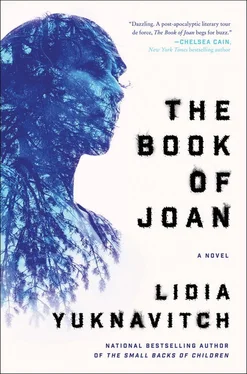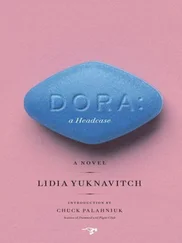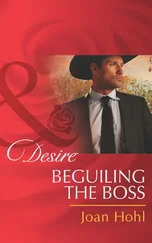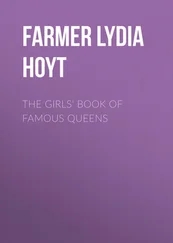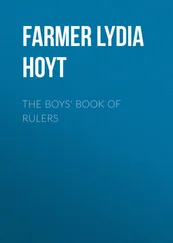Earth is a cemetery. There is nothing to say. Nothing to say about all of this empty. There was no proper eulogy. I think of all the so-called lifeless planets out there floating in space. Was this really the end of our story? To join the galaxies of spinning, floating planets, home to nothing, to no one but the elements that comprised us? We deserve it. For what we’ve done to each other. For what we did to this orb we found ourselves inhabiting. This beautiful, godforsaken place where once there was life.
For what I did.
Nyx steps ahead of me, leaving dust holes in the terrain. I know it is a city, this place—not just because of the mighty architectural icons or beehive-like living structures and transportation labyrinths, but because I can see the carcasses of misshapen airplanes.
And I know exactly where we were.
City of light or water or art. City of history and sprawling avenues spoking out from its landmarks, stretching out like the lines of an urban poem. City of rivers and streams threading through arrondissements and kissing tree-lined quays. Ghosts of cathedrals pulling faith in between the past and the present, rising from an island waterway, stretching to see a sister church. Old stone, older than stone-making, stone-giving cobblestoned streets pressed up against districts, once as distinct as the people on the planet; neighborhoods like chapters from books, or what used to be books, turning and lifting now into some raw otherness. City of walking by day, and metros snaking and tunneling underneath it all, some subterranean transit worming forward and backward having once teemed with human.
The memories make a wasteland of my eyes and throat. Wind continues to pummel us as we walk.
When I last set foot in this city, before the Wars—we were children, my brother’s face not yet etched with violence, mine not yet fully bloomed into a woman’s map of rage and despair, the two of us laughing within the city, Paris, peopled with—oh, how richly peopled it had been! An image: two glasses of wine making that glass-to-glass note as my parents toasted. Tears sting the corners of my eyes as Nyx and I trudge through the desolation. I can already taste the salt hopelessness of the imagined memory—the city and life of lovers that Leone and I would never be or inhabit: streets full of Africans and Asians, Chinese and Vietnamese—my love Leone sometimes stopping to speak Vietnamese—the city teeming with Poles, Ukrainians, Russians, and Serbs, with city natives and those from the countryside, feeling foreign amid the urban rush and wail of capital and culture, Americans and Brits straining to become kindred in spite of themselves, Italians swarming and winding ’round Germans and Australians too blond or too tall—all of it surging like a single organism of flesh and bone through the streets and alleys always smelling of bread and urine and cheese and soot and riverstink… how a single glass of wine on any night next to the river touched to the lips between two people could feel like every love there ever was or would be… the night like the water lapping over us, the sky filling with stars that stitched our names…
Bridges bridging land and water and past and present, from upstream to downstream to bays and on to oceans…
Before me now, not a single remaining bridge fully crosses the dusted gutted riverbed. The nubs of the city’s iconic skyline are as unrecognizable as half-rotten corpses on a battlefield.
The wind kicks up again and purges my memories. This land a waste.
Though I wish my own voice would just swallow itself or destroy me, I speak across a lull in the wind’s torrent: “Why are we here? This city is dead.”
But Nyx is already walking down into the Seine’s cavernous, dry riverbed. “Stop being so blind. There’s a city underneath this. I thought you understood about subterranean life. Everything is matter.”
At first I hear this as “everything matters,” then realize my error. Nyx’s deliberateness, the determination of her walk away from me, pulls me along. I clamber down and fall part of the way, rolling like blown detritus. I land at Nyx’s feet. I look up. “What kind of ‘city’ could there be underneath all this?” My voice fills with bile. Suddenly, instinctively, I know exactly where we are. I cannot believe they chose the city I loved so much.
We are at the site of my execution, what was restaged on CIEL.
“Once a city of culture,” Nyx says, holding a hand out to help me stand.
On CIEL, Christine walks down a corridor and looks at two Olms in the palm of her hand. She’s taken to carrying a few of them around with her everywhere—even, truth be told, talking to them sometimes. What better time to be losing one’s mind?
Between Trinculo updates and the spider’s Morse code, what she has learned is this: the Olms were like early evolutionary versions of Joan. They had developed new sensory organs from their subterranean existence, just as all evolutionary changes happened—only, with the speed of geocatastrophe, it had all happened much faster. The blue light at the side of Joan’s head, and the so-called song that accompanied it, were like a string linking her to something other. Her new sensory organ did indeed give her elemental powers on Earth. But that was only part of the story. Joan’s body had the power to conduct all living matter, to destroy yes, but also to regenerate.
Christine stops in her tracks for a moment and blows on the Olms in her hand. They circle and tighten into a little white ball. We’re all made of star stuff, she thinks, but Joan has a direct line to a cosmic system.
For a moment, Christine’s sympathy for Joan pools in her imagination. What must it have been like, as a girl, to carry a song of all creation and destruction in her head? What must it be like to carry the burden of humanity—and its end—around in a woman’s body, when a woman’s body was made to create life? Christine places her hand on her own pubis. The pubic bone remained, but nothing else did.
She holds a micro version of what Joan has likely felt on a cosmic level: survivor’s guilt.
Joan had been unable to save humanity.
It is a wonder she did not suicide after she survived her own execution, only to engender destruction.
Christine ducks into an alcove. The hiss and hum of the CIEL breathing system drones on. Metallic sentries and bloated white doilies—what is left of the human race—parade by her. She touches her free hand to her chest, feeling the raised words, reading them as Braille.
She holds the little Olms up to her lips and whispers to them, soft as a lullaby: “I understand it now. You have to let go of the idea that you are a singular savior or destroyer. Everything is matter. Everything is moved by and through energy. Bodies are miniature renditions of the entire universe. We are a collective mammalian energy source. That is what we have always been. What an epic error we made in misinterpreting it all.” The Olms crawl up her wrist and forearm, then up to her shoulder, resting at the place between her jaw and collarbone, where she’s recently burned a plot twist into Joan’s story.
By one thick rock face along the dry riverbed, diving down from the decrepit remains of the city, Nyx stops. I stop, too. Nyx doesn’t even bother to acknowledge me. I see Nyx’s hands go up against the giant gray dirt edifice and I know something will move soon. I know to watch. I feel the ground under us tremor.
The wind stops.
For a long minute, the surrounding atmosphere seems to stop moving. I can swear that molecules of hydrogen and oxygen have slowed down enough to be seen. If I am delusional, well, then the delusion swallows me whole.
Читать дальше
